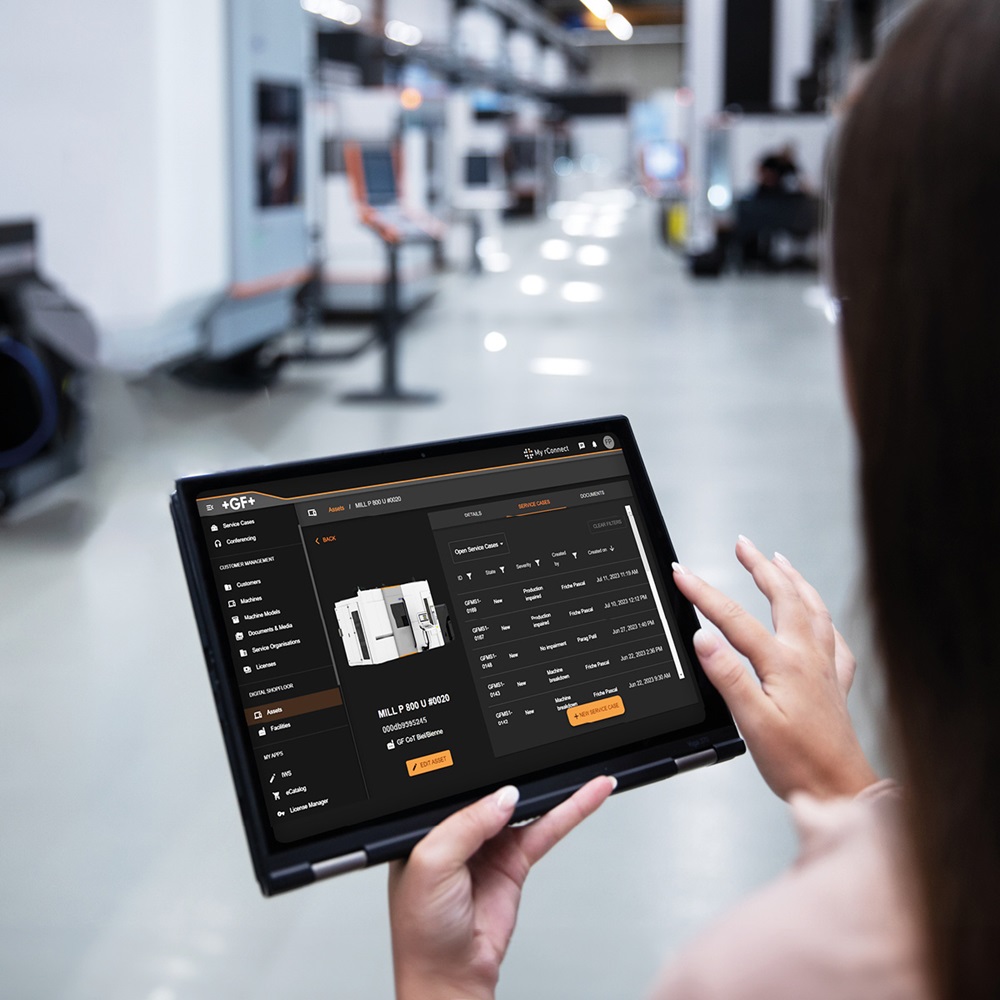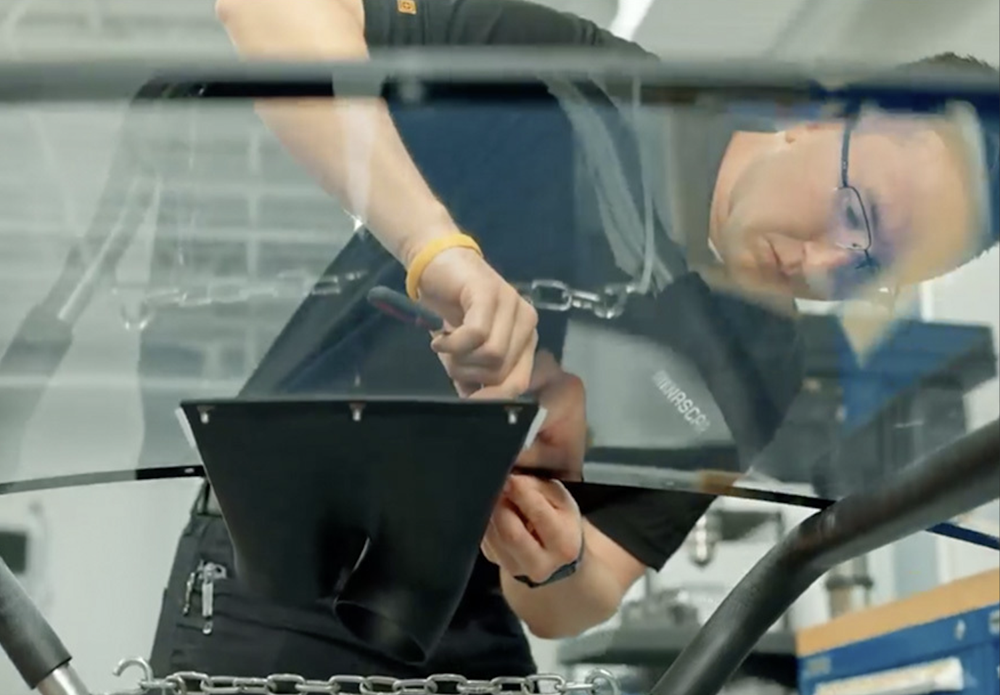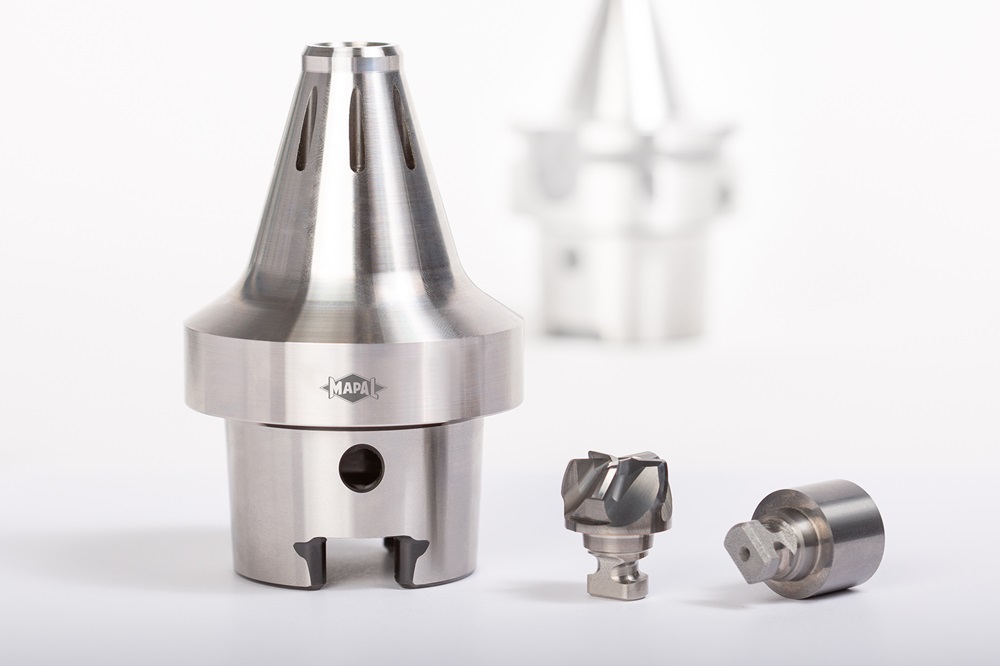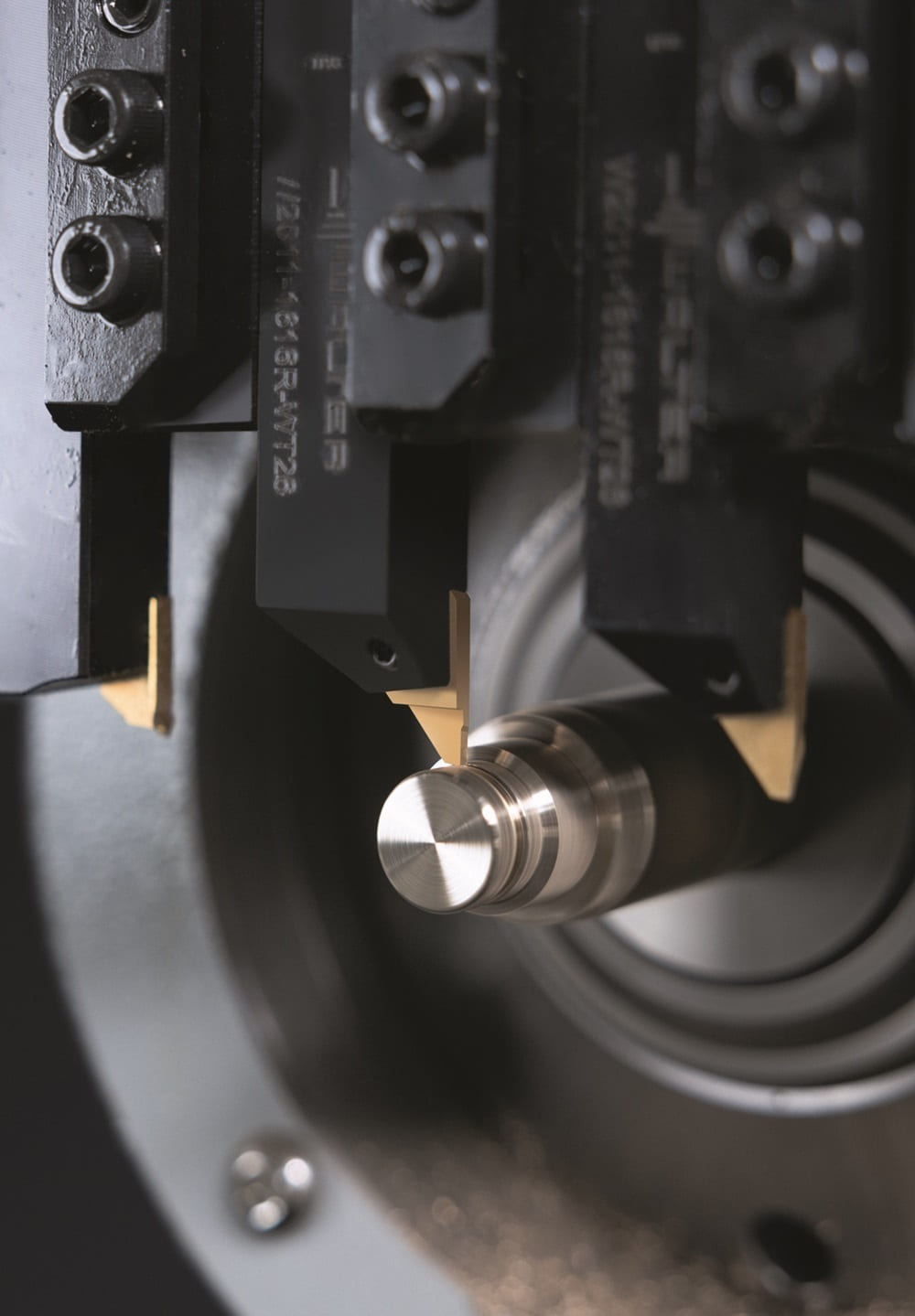Mapal has introduced a patent-pending bayonet-type connection for milling cutter systems with a replaceable head. Users benefit from easy handling with a rigid connection and optimal cooling. The tool manufacturer also saves carbide with the connection, conserving resources.
The functional principle of the new connection could not be easier: the replaceable head only has to be inserted and turned 90° to achieve locking. That is a lot easier than the previous system for replaceable-head milling cutters from Mapal or comparable systems where the replaceable head is threaded and has to be screwed-in several turns.
Mapal’s new bayonet system achieves very high rigidity thanks to its large cylindrical face connection. While the force only acts on one side when tightening a thread due to its pitch, the Mapal system ensures a symmetrical insertion and good distribution of force.
Together with the connection, Mapal is introducing a new tool-holder design. The tool holder has a ring of cooling channel bores, which enables a much higher volume of cooling than conventional internal cooling is able to provide. By channelling the coolant directly to the area of the cutting edges, the tool life is extended and machining quality improved.
In addition, by eliminating the need for a central cooling channel bore, the milling head becomes much more stable. The tool holder is 10-15% more rigid than comparable systems, reports Mapal, resulting in higher achievable form and position tolerances, smoother processes and longer tool life.
The solid-carbide replaceable heads from Mapal offer high process reliability as inserts cannot become loose at high temperatures. If tool breakage does occur, the connection’s simple assembly ensures operators can resume the machining process quickly.
More information www.mapal.com



















